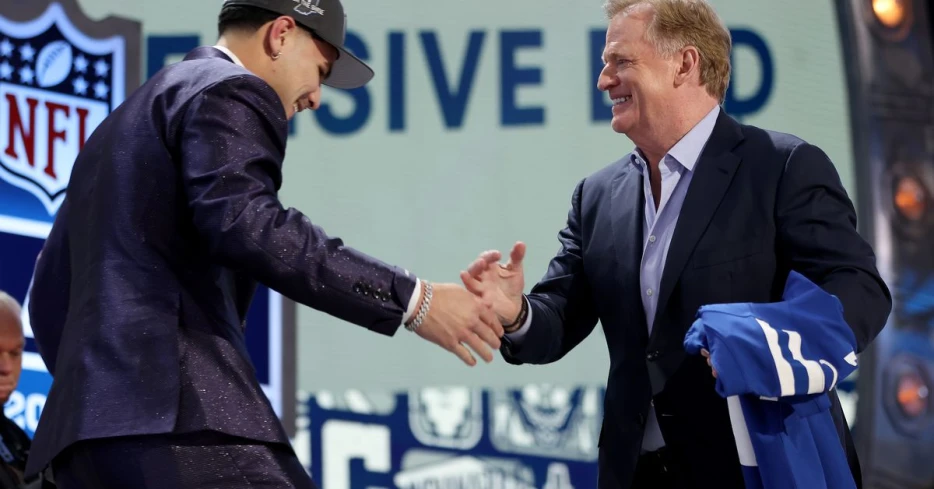
 Stampede Blue
Stampede Blue
The Colts added another impact pass rusher, as the team competes in the AFC South with quarterbacks C.J. Stroud and Trevor Lawrence.
According to general manager Chris Ballard on ‘The Pat McAfee Show,’ the Indianapolis Colts “can never have enough pass rushers,” which is why arguably the most natural sackmaster in this year’s draft class, UCLA’s Laiatu Latu, was chosen with the 15th pick:
Latu has had past spinal medical issues, even to the point of being medically advised to retire from football, but after having neck surgery by the same doctor who performed Peyton Manning’s back in 2011, he’s had two years of playing healthy collegiate football—recording 23.5 total sacks over that same span.
NFL Network’s Daniel Jeremiah called him the “most natural pass rusher in this year’s class.”
Latu has a wide array of pass rushing moves and bend, even if he doesn’t fit some of the prototypical pass rushing measurements that Ballard typically prefers. He also has some versatility with the ability to play the edge, while kicking inside in nickel on passing downs.
It’ll be interesting to see how the Colts deploy him as a rookie, as the team already has Samson Ebukam, Kwity Paye, and Dayo Odeyingbo in their defensive end rotation—meaning it’s possible we initially see Latu in subpackages and as a pure pass rushing specialist.
In an AFC South division that features C.J. Stroud and Trevor Lawrence, it’s not a bad idea for the Colts to add an impact pass rusher—especially in today’s modern passing league.
While the medical history on his spine is concerning, particularly given the Colts being seemingly snake-bitten by injuries, there’s no doubting Latu’s natural talent, ability, as well as his high level of production at UCLA. It was pretty surprising he was available at #15, given how pass rushers are held at a premium—even some with a track record of neck injuries.